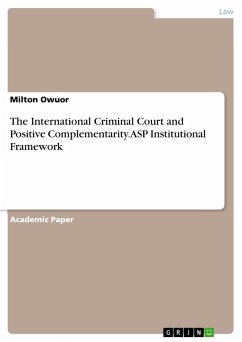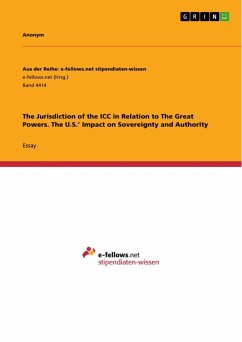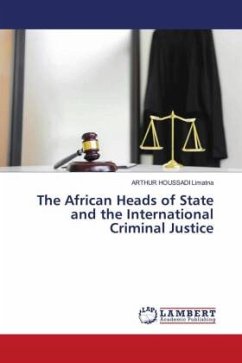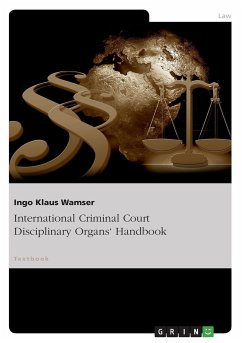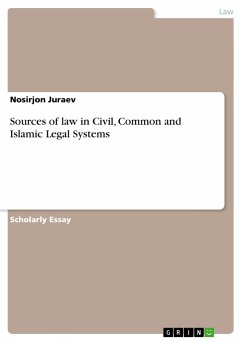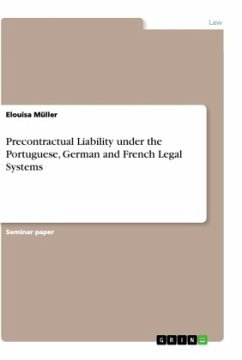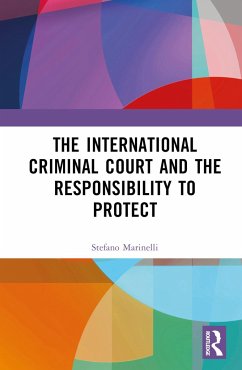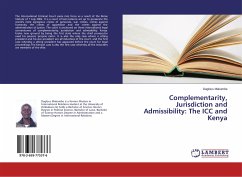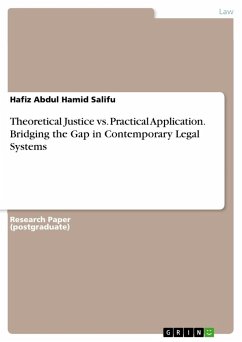
Theoretical Justice vs. Practical Application. Bridging the Gap in Contemporary Legal Systems

PAYBACK Punkte
0 °P sammeln!
Research Paper (postgraduate) from the year 2024 in the subject Law - Comparative Legal Systems, Comparative Law, University of Ghana, Legon, language: English, abstract: This paper explores the dichotomy between theoretical definitions of justice and their practical applications in contemporary legal systems. Theoretical frameworks from renowned philosophers such as Plato, Aristotle, Kant, and Rawls are examined, highlighting their distinct yet converging notions of fairness, equity, and moral righteousness. Despite these comprehensive theories, modern justice systems often fail to uphold the...
Research Paper (postgraduate) from the year 2024 in the subject Law - Comparative Legal Systems, Comparative Law, University of Ghana, Legon, language: English, abstract: This paper explores the dichotomy between theoretical definitions of justice and their practical applications in contemporary legal systems. Theoretical frameworks from renowned philosophers such as Plato, Aristotle, Kant, and Rawls are examined, highlighting their distinct yet converging notions of fairness, equity, and moral righteousness. Despite these comprehensive theories, modern justice systems often fail to uphold these ideals due to systemic biases, disparities in legal outcomes, and political influences. Through case studies such as the Central Park Five and the International Criminal Court's recent controversy involving Israeli Prime Minister Benjamin Netanyahu, the paper illustrates the persistent challenges in achieving true justice. The discussion identifies corruption, discrimination, and limited access to legal resources as significant barriers to justice. Potential reforms, including enhancing transparency, increasing access to legal aid, and promoting procedural fairness, are proposed to bridge the gap between theoretical justice and its real-world application. By understanding both the philosophical foundations and practical challenges, the paper underscores the need for continuous efforts to align legal practices with the ideals of fairness and equity, aiming to create a more just and equitable society.




